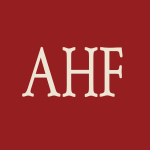
Delays and Discord are Sinking COVAX, says AHF
LOS ANGELES–(BUSINESS WIRE)–What began as a promising campaign with an ambitious but attainable goal of providing COVID-19 vaccines to developing countries has so far fallen short in delivering on its promises, sending countries scrambling for solutions and leaving billions of people without vaccine access.
The COVAX Facility is an initiative led by the World Health Organization, GAVI – the Global Vaccine Alliance, and the Coalition for Epidemic Preparedness Innovations. The collaboration was established to ensure that people in 190 countries, and particularly in 92 of the most economically challenged countries, had the same access to vaccines as people in wealthy nations. High-income countries now have a confirmed 4.2 billion doses, whereas low- and middle-income countries have only 670 million total. Fewer than 100 doses had been administered in low-income countries, as of Feb. 8. Just yesterday, nearly a year after the pandemic began, Ghana became the first country to receive a modest shipment of vaccines from COVAX.
“As a provider of HIV/AIDS care and treatment for more than 30 years, we are seeing the same scandalous delays in rolling out COVID-19 vaccines as we saw in the early days of ARVs [antiretrovirals] for those who were dying from AIDS related illnesses in developing countries,” said AHF Chief of Global Advocacy and Policy Terri Ford. “Developing countries are tired of waiting on COVAX—its dysfunction has pushed many to seek their own deals with pharma companies. Wealthy nations (which COVAX needed participation from to succeed) have bypassed it, they’ve bought up the bulk of the global supply (both pre- and post-production), and there are simply too few vaccine options available through the scheme to get doses to all who need them.”
Vaccine nationalism has been harshly criticized by advocates worldwide as a significant barrier to equitable access to lifesaving medicines, with reports of 70% of developing countries only being able to vaccinate one-in-ten people against COVID-19 unless urgent action is taken by governments and drug companies. Hoarding vaccines also slows the overall global recovery, which will cost high-income countries an estimated $119 billion per year.
“Several countries have bought enough doses to vaccinate their populations multiple times over, and vaccines have been available for 10 weeks in the U.S. yet are still unavailable in the majority of nations,” said Dr. Patricia Campos, AHF Latin America and Caribbean Region Bureau Chief. “In Latin America, many countries have been forced to look for alternative sources of vaccine because COVAX offers too few options and is too slow in delivering doses in sufficiently high quantities. Honduras is just one such example; recently the Honduran Minister of Foreign Affairs Lisandro Rosales apologized to the country on behalf of the government for having placed trust in COVAX to deliver the desperately needed vaccines as the country is struggling to recover after a series of hurricanes. Vaccination must be universal to be effective—the only way that can happen is via worldwide cooperation and coordination – both of which have been lacking.”
Funding remains a primary obstacle to the success of COVAX, which ended 2020 with a $755 million deficit and faces a funding gap of $6.4 billion in 2021. The world is in desperate need of a viable option for vaccine delivery to low- and middle-income countries – COVAX in its present form is not meeting that need. Recent funding commitments by the US and some Western European donors are a step in the right direction for turning COVAX around, but with lives of billions on the line the approach to getting doses out to the world needs a major overhaul – waiting another year to reach equity in vaccine availability around the world is unacceptable. As Pope Francis has aptly noted, “It would be sad if this vaccine were to become the property of this nation or another, rather than universal and for all.”
AIDS Healthcare Foundation (AHF), the largest global AIDS organization, currently provides medical care and/or services to over 1.5 million clients in 45 countries worldwide in the US, Africa, Latin America/Caribbean, the Asia/Pacific Region and Europe. To learn more about AHF, please visit our website: www.aidshealth.org, find us on Facebook: www.facebook.com/aidshealth and follow us on Twitter: @aidshealthcare and Instagram: @aidshealthcare
Contacts
US MEDIA CONTACT:
Denys Nazarov, Director of Global Policy & Communications, AHF
+1 323.308.1829
denys.nazarov@ahf.org
Terri Ford, Chief of Global Advocacy & Policy, AHF
+1 323.308.1820
terri.ford@ahf.org
